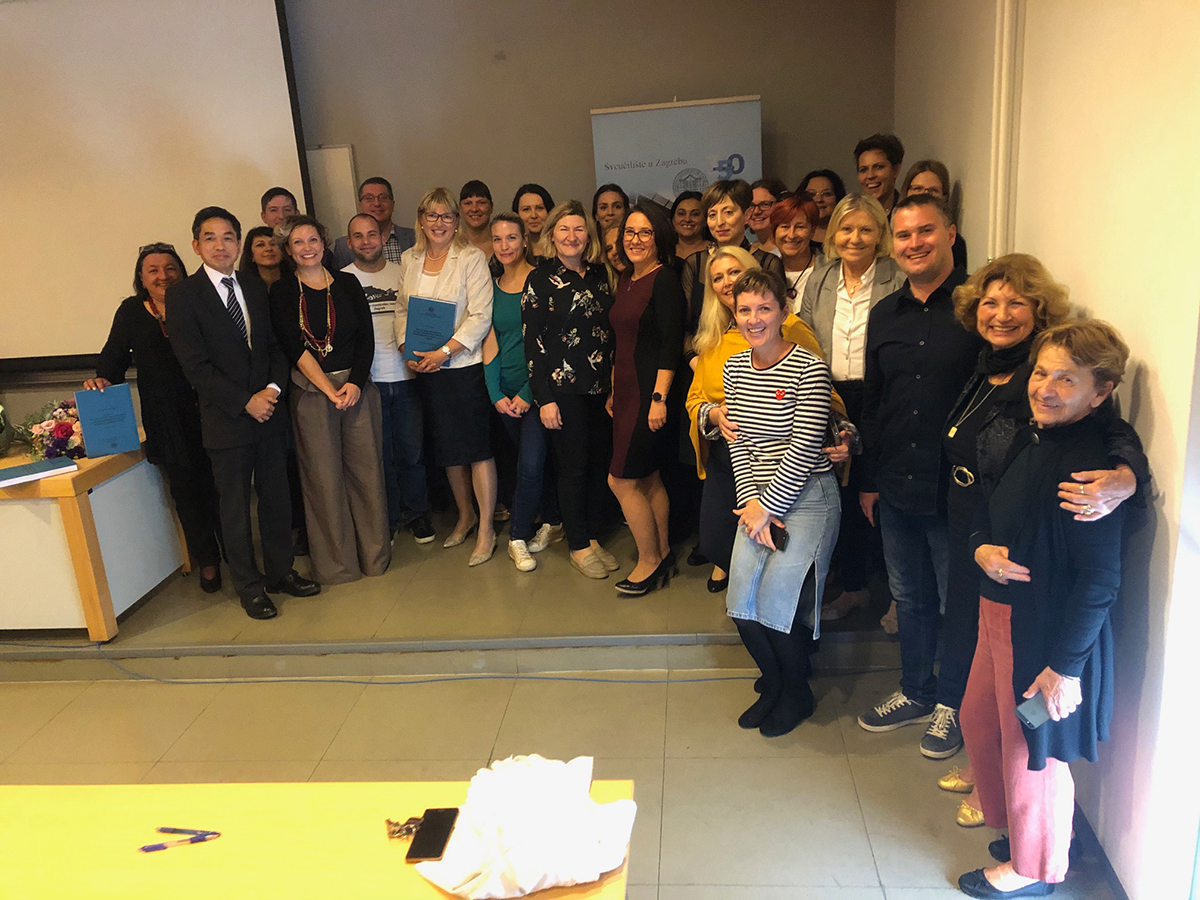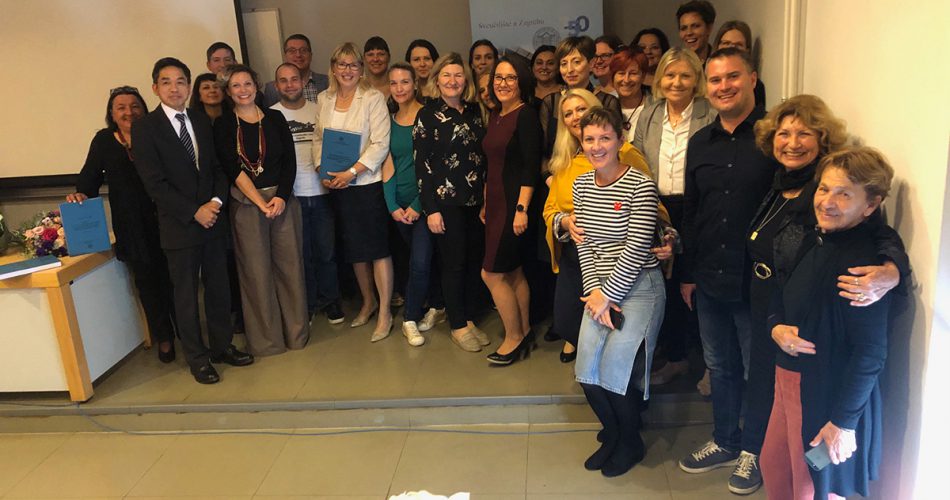Zorana Kovacevic, assistant at the Department of Textile Chemistry and Ecology, successfully defended her doctoral dissertation under the title ” Development of advanced polylactide nanobiocomposite reinforced with Spartium junceum L. fibres ” (Razvoj naprednih nanobiokompozita izrađenih od polilaktidnog polimera ojačanog vlaknima brnistre). This doctoral thesis is written by the so-called Scandinavian model and was defended at the University of Zagreb Faculty of Textile Technology in English in front of a committee composed of:
• Prof. dr. sc. Edita Vujasinović, University of Zagreb Faculty of Textile Technology
• Prof. dr. sc. Sandra Bischof, University of Zagreb Faculty of Textile Technology
• Prof. dr. sc. Zdravko Schauperl, University of Zagreb Faculty of Mechanical Engineering and Naval Architecture
The paper was created under the mentorship of prof. dr. sc. Sandra Bischof, University of Zagreb, Faculty of Textile Technology and prof. dr. sc. Mizi Fan, Brunel University London, UK.
The main goal of this thesis was to develop biodegradable composite material of sustainable origin made of polylactide polymer and Spartium junceum L. fibre for possible usage in automotive industry. Increased demand for the usage of sustainable and biodegradable natural materials has triggered wider production of biocomposites. Three fibre extraction (maceration) methods were investigated: water retting, osmotic degumming and alkali retting under the influence of microwave energy. It was proven that long lasting conventional maceration method can be succesfully replaced by ecologically favourable method using microwaves. Functionalization of fibres was carried out using montmorillonite nanoclay particles added as a flame retardant nanofiller, and citric acid as an environmentally friendly crosslinker. Effectiveness of the conducted modifications was examined according to the relevant standardized methods used in current industrial and manufacturing processes (testing of morphological, mechanical, chemical and thermal properties of the final composite material). Biodegradability of developed composite materials was examined using the endopeptidase enzyme. In addition, the possibility of utilizing plant residues after the maceration process was explored. The analysis of the chemically treated residues after maceration showed increase in content of positive biomass quality indicators, presenting it as a promising feedstock for the production of solid biofuels. The significance of the proposed research lies in the application of innovative, sustainable raw materials for the production of new advanced products of wide application.


